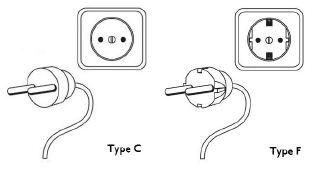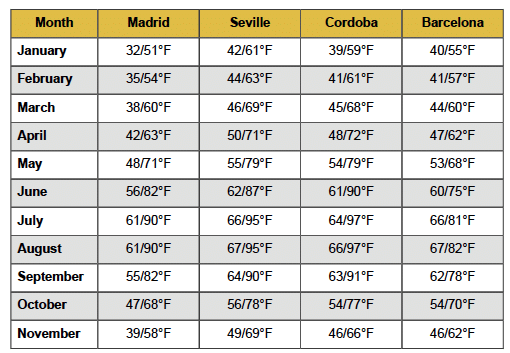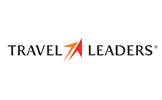SPAIN

Fun Facts From Globus Tours
- Spain was among the most powerful empires in the world during the 16th century.
- Soccer is the most popular spectator sport in Spain.
- The locals of Spain have lunch at 2:00 pm and dinner around 9:00 to 10:00 pm.
- Christopher Columbus set sail from Spain to find the New World.
Spain…a country with breathtaking sea and landscapes, picturesque villages and towns, hilltop castles, Moorish palaces, and historic cities. Typical Spanish scenery includes mountains, vast plains, vineyards, and groves of citrus, almond, and olive trees. With a territory of 195,000 square miles, Spain is only slightly smaller than its northern neighbor, France, but has almost 20 million less inhabitants. Architecture from throughout the centuries is represented—from Gehry’s futuristic Guggenheim Museum in the north to the dramatic Moorish Alhambra palace (a carefully preserved heritage from the Phoenicians, Romans, and Moors) in the south.
The wealth of Spanish culture conjures up Cervantes’ 16th-century book Don Quixote and the internationally renowned operatic voices of Placido Domingo, Jose Carreras, and Montserrat Caballé— not to mention the popular Iglesias family. Famous artists Velasquez, Goya, Picasso, and Dalí all hailed from Spain, and their works can be admired in the country’s magnificent museums. But the real essence of Spain is captured in the unique and passionate combination of voice and dance that is Flamenco, an experience not to be missed.
Spain has an international and varied cuisine; thanks to the long coastline, there is plentiful fresh fish and seafood, and dining venues range from the most sophisticated to the rustic bodega. Paella is its most famous dish, and excellent wines are produced throughout the country.
VISAS, PASSPORTS, AND OTHER ENTRY REQUIREMENTS
Visas to Spain are not required for US citizens. If you hold a passport from another country, please check with your local consulate about requirements for travel to Spain. All passengers traveling internationally are required to have a passport. Please carry proper identification (your passport) on you and do not leave it in your suitcase or hotel room.
It is advisable to carry your passport with you at all times.
COUNTRY CODES
The country code for Spain is 34. When calling to Spain from overseas, dial your international access code (011 from the US/Canada), followed by the country code, area code, and phone number. Phone numbers in Spain are nine digits in length. Dialing from the US/Canada: 011 34### ######.
CURRENCY
The official currency of Spain is the Euro.
Bank hours 9 a.m. to 2 p.m., Monday through Friday. Some banks may also open Saturdays 9 a.m. to 2 p.m.
1 EURO (€) = 100 Cents (c)
- Banknote denominations: €5, €10, €20, €50, €100, €200, €500
- Coin denominations: 1c, 2c, 5c, 10c, 20c, 50c, €1, €2
Euro coins differ according to country, but they can be used in any Eurozone state. Bank notes are of uniform EU design (depicting European architectural styles throughout seven ages, from Classical to Modern times).
For the most current exchange rates, please go to our website at Globusjourneys.com/Currency.
Credit cards are widely accepted (mostly Visa and MasterCard), and you should have no problems using them in larger shops and restaurants. Smaller shops may ask you to pay in cash or have a minimum amount required to use a credit card.
BUDGETING AND SHOPPING
The following budget guidelines are just approximate values or starting values for meals and are per person. Actual prices will vary widely by restaurant and city within a country but below are some averages as provided by our experienced personnel.
- The approximate cost of a soft drink/mineral water/coffee is €2.50.
- An average lunch consisting of a salad or sandwich and a soda or water starts at approximately €12.
- Dinner at a mid-range restaurant with dessert and a non-alcoholic beverage starts at approximately €30.
Please note that soft drinks and mineral water are often as expensive, if not more expensive than wine or beer.
Shopping specialties: art and paintings, pottery, decorated plates, Damascene work, inlaid wood work, Spanish guitars, shawls, fans, religious articles, Majorca pearls, Lladro porcelain, leather goods.
Counterfeit and pirated goods are widely available; be aware that under local law transactions involving such products may be illegal, and bringing them home may result in confiscation and fines.
Sales tax or VAT (value added tax) is included on price tags. To obtain VAT refunds (which may take up to three months to process) special forms usually have to be stamped by Customs; please ask for a tax-free shopping form with each purchase and follow the instructions for completion. Customs import charges on items shipped home are not included in purchase prices.
Stores may close at different times/earlier than back home (allow for siesta!) and are usually not open on Sundays.
TIPPING
For restaurant services where the service charge is already included, round up the check by a few Euro (5% of the check). Otherwise, 10-15% is a reasonable amount (tips are usually left in cash, not added to the credit card payment). Be aware that IVA (VAT) included on the check is not a tip.
- For taxis, round up the fare to the nearest whole Euro. Taxi drivers charge extra per suitcase/bag.
- Restroom attendants expect a small gratuity. Therefore we recommend carrying small denomination coins with you.
- Tip hotel staff €1 for room service.
ELECTRICITY AND ELECTRICAL OUTLETS
Outlets
Voltage for outlets is 220V. North American voltage is generally 110V. Therefore, you will need a converter for your travels. Adapters will be necessary to adapt your plug into the outlet, but these may not convert the voltage, so both devices are necessary. Spain uses a round, 2-prong plug that looks like:

TEMPERATURES
Spain’s coastal regions experience hot, dry summers and mild, rainy winters. If you go inland or northward, however, expect some cooler temperatures. As you travel in this region, be sure to pack a comfortable raincoat in your tote and bring a light jacket in spring and fall. Winter conditions requires lots of layers and a heavier coat. To help you plan, below are average low and high temperatures for Spain.


To convert to Celsius, subtract 30, then divide by 2. While not exact, this simple formula will give a close estimation.
CUSTOMS AND CULTURE
You may encounter fewer English-speaking citizens than you might expect. Though it’s possible they sometimes may seem a little abrupt or brusque on the surface, you will find the Spanish people are very kind.
FOOD SPECIALTIES
Fresh fish and seafood, Paella, Gazpacho (cold soup of blended tomatoes, peppers, cucumbers, garlic),
Empanadas (meat or fish turnovers), Tortilla (potato omelette), Jamón Serrano (cured ham), sheep’s milk cheese, bean/lentil/ chickpea stews, locally grown olives, Albóndigas (meatballs in sauce), Crema Catalana (caramel custard dessert), fine wines, and sherry.
Opening times for restaurants: 1:30 pm to 4:00 pm and from 8:30/9:00 pm to midnight or later (a few restaurants open at 8:00 pm).
FEW WORDS OF THE LOCAL LANGUAGE
Spanish:

Hello: Hola, Good morning: Buenos días, Good evening: Buenas noches, Goodbye: Hasta luego, Please: Por favor, Thank you: Gracias, Yes: Sí, No: No, Do you speak English: Habla usted inglés? I do not understand: Yo no entiendo, Please write it down: Por favor escribalo, How much? Cuánto vale?, 1: Uno, 2: Dos, 3: Tres, 4: Cuatro, 5: Cinco, 6: Seis, 7: Siete, 8: Ocho, 9: Nueve, 10: Diez, Where is…? Donde está..?, To the right: A la derecha, To the left: A la izquierda, Telephone: Teléfono, Bathroom: Baño, Tea: Té, Coffee: Café, Bottled water: Agua mineral, Cheers!: Salud!, Restaurant check/bill: La cuenta, Have a nice day!: Tenga un buen dia!..
U.S. DEPARTMENT OF STATE COUNTRY INFORMATION
Additional country-specific information for US citizens can be found on the US Government’s website www.travel.state.gov. Here, you can find the most up-to-date information about destination descriptions, passports/visas, safety and security, transportation, travel local laws, alerts/warnings, vaccinations, and more. For citizens of other nations, we recommend you consult your local consulate for travel information, regulations, and requirements.













